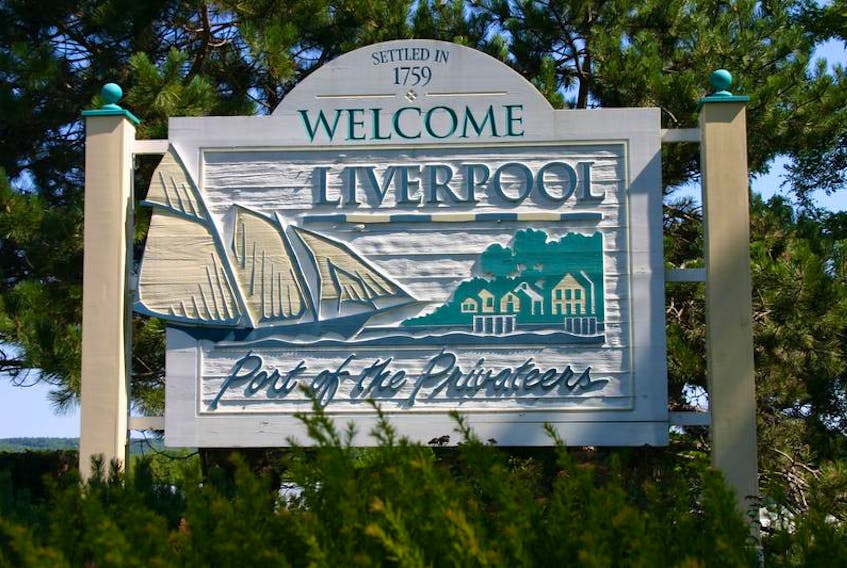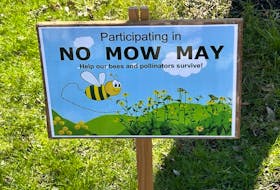When a regular reader (thanks, Walt) recently sent me a link to an article that appeared in the National Post and was talking about how some small towns refuse to die after they lose their major industry, I immediately drew parallels to Liverpool.
It may be difficult to believe, but it will be seven years this June since Resolute shuttered the Bowater Mersey paper mill in Brooklyn. While the region has endured some tough times since then with a list of obstacles to overcome, it does bear mentioning that Liverpool hasn’t died the agonizing death that many had been predicted at the time. In fact, it can be said that the town has bounced back well beyond expectations.
Don’t get me wrong. The mill’s closure was, without a doubt, a crippling blow to the region’s economic and social structure. However, while the impact was felt close to home, the reality is that in recent decades, rural towns throughout North America have been struggling for their very survival as traditional resource industries such as mining, forestry, agriculture and the fisheries face shutdowns and adjustments in the marketplace.
The realties of a society reinventing itself and moving into a new era where many of these traditional industries have outlived their welcome or, at the very least, have been forced to make adjustments in their business models, which often leads to downsizing and job losses, has lead to a realignment that has not be so favourable to rural communities.
This was the reality in Liverpool where the collapse of the newsprint industry due to shrinking demand for the product, coupled with external pressures such as tougher environmental regulations and the rising costs of materials, led to the mill’s closure. Many discussions and debates have been held in recent years about what could have been done to prevent the closure but the reality remains that the mill is gone and will never be back.
Faced with that reality then, the community basically had two options — accept the inevitable, roll up the sidewalks and die or, collectively, take a deep breath, roll up the sleeves and push forward. Thankfully, the majority chose the second option and today, almost seven years after the mill was shuttered, Liverpool continues to hum along, albeit at a different pace than previous generations experienced.
It would be naïve to think that there have not been difficult times for the small, South Shore town. There have been. It would also be naïve to think that the town is completely out of the dangerous water. It is not. In fact, there is much more work to be done, but the truth of the matter is that, despite the dire predictions, the town did not die and we are optimistic for a bright future.
I remember reading or hearing somewhere that when a town such as Liverpool loses its major industry, it takes at least 10 years for the community to recover to the point where it was when the industry was shut down. Well, we have three more years to go until we reach that milestone and, as many of the signs suggest, the town is clawing its way back.
Liverpool’s economic recovery is basically a survival story and it’s also a testament to the hardworking, resilient and resourceful people who live here.
As pointed out in the January 2 National Post article written by Joe O’Connor, some towns across the country have been creative in trying to attract business investors. For example, they offer one-dollar building lots, tax breaks and guaranteed loans to win over newcomers. While Liverpool has not undertaken these types of tactics, the community has welcomed new ideas and initiatives while at the same time building upon the resources that have served us well in the past.
As a result, we are seeing the emergence of new and expanded economic opportunities in and around Liverpool. New businesses such as Aqualitas, an aquaponic cannabis company, have set up shop on the former mill property and when fully operational will have significant impact on the local economy.
At the same time, older, established businesses such as Mersey Seafoods Ltd. are investing millions of dollars to build a new, state-of-the-art processing plant on their Bristol Avenue property, a move that will secure its future for many decades and will have lasting positive impacts on the community.
There are other positive signs that Liverpool is moving in the right direction. New people are coming to town and opening businesses such as Five Girls Baking and Main & Mersey Home Store on the town’s Main Street. National chains like Dollarama have opened in Liverpool while other long-established businesses like White Point Beach Resort have made significant investments in their operations.
Other positive signs that Liverpool is on the rebound include the many events and activities being held throughout the community including the World Junior Curling Championships coming to town in February. This is a major undertaking as we are talking about the eyes of the world being on this small South Shore town. No matter the size of the challenge, there is no doubt the community will rise to the occasion and pull off a tremendous event that will be talked about around the globe.
There are those who will argue that Liverpool will never get back to the prosperousglory days when the paper mill was fully operational, employed hundreds of people and pumped millions of dollars into the region’s economy and to those people I would say, you are correct. There is no chance of that. But I would also say it is time to move on. Those days are long since passed and dwelling on the past will get us nowhere.
Instead, why not choose to focus on our strengths and the many positives that are so clearly visible throughout the community because, contrary to what some would have us believe, reports of the town’s imminent death are greatly over exaggerated.
Or at least that’s the view from here.
Vernon Oickle was born and raised in Liverpool where he continues to reside with his family. He has worked for more than 30 years in community newspapers on the South Shore and is the author of 28 books.









